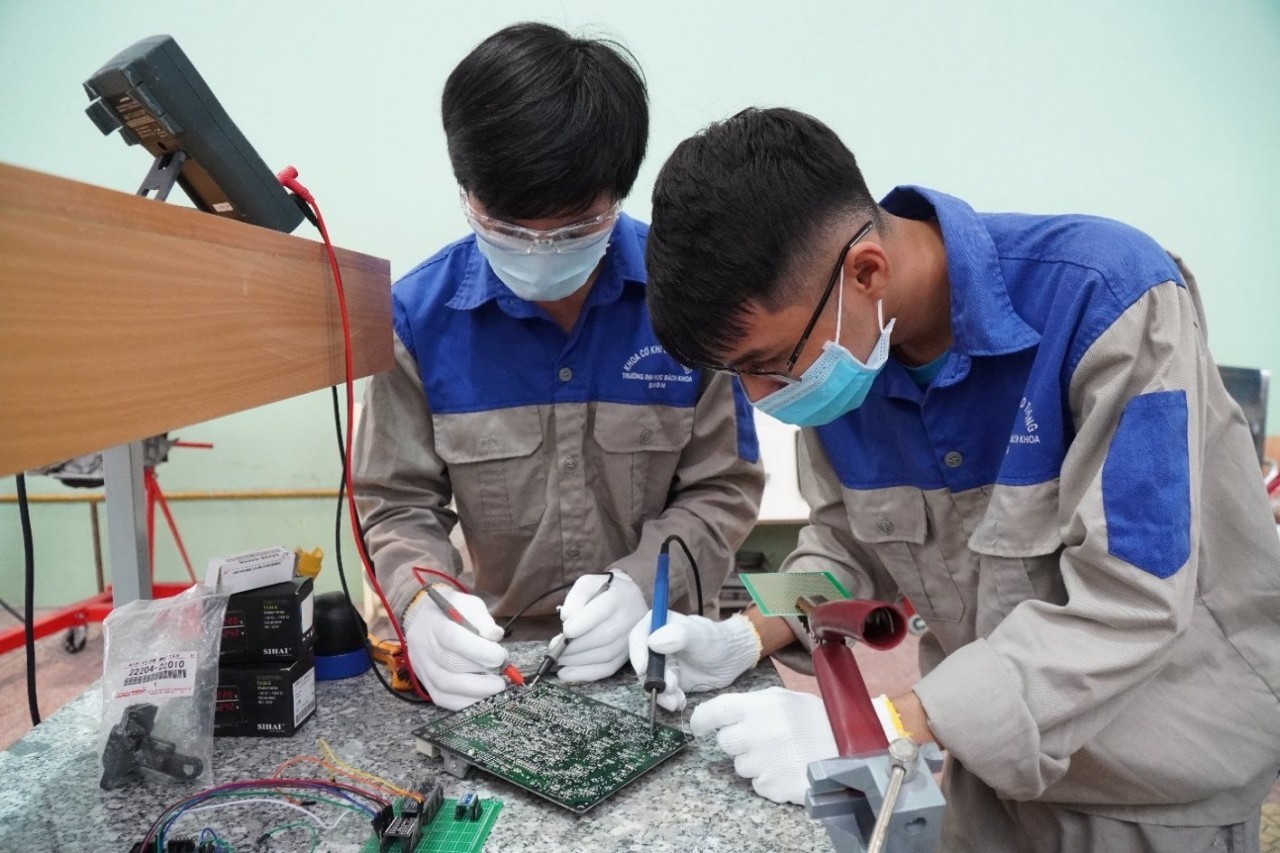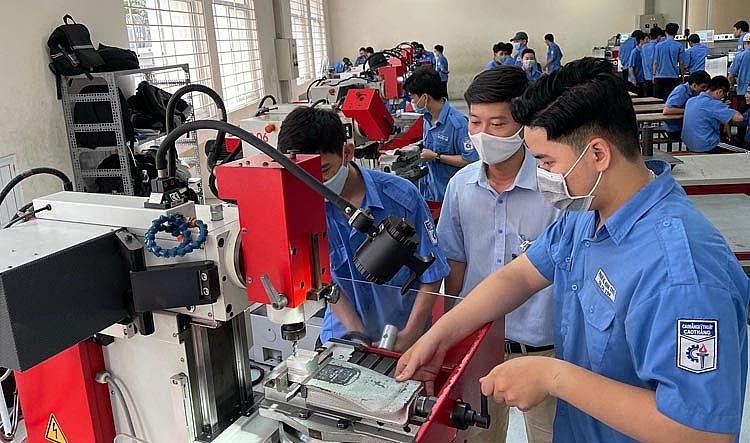
Vietnamese engineers prepared for "venturing into the vast sea": Expert
Latest
 |
| Vietnamese engineers prepared for "venturing into the vast sea": Participating in the registration of professional engineers in ASEAN or APEC brings forth numerous opportunities for engineers, educational institutions, and the entities employing engineers from Vietnam. (Photo: Da Nang University) |
Access to new markets
The labor shift is an inevitable trend as countries and territories embrace integration, connectivity, forming a unified market to drive economic and technological development and enhance competitive advantages in the region.
Moreover, labor migration brings significant economic benefits to regions, as well as individuals, allowing the exploitation of newly discovered resources. Simultaneously, it enhances the efficiency of labor utilization and improves career prospects for individuals in regions with fewer opportunities.
Unlike ordinary labor, labor migration requires engineers to meet standards of competence before practicing or using their professional titles.
At the workshop titled APEC Engineer Register: Sharing experiences in engineering education in the ASEAN and APEC regions, Assoc. Prof. Dr. Pham Ngoc Linh, Vice President of the Vietnam Union of Science and Technology Associations (VUSTA), emphasized that the APEC Engineers Association is a reputable organization uniting engineers from across the Asia-Pacific region.
"Joining this association can yield numerous benefits for engineers, scientific and technological organizations, and our engineering associations, including the ability to access new markets, to have new opportunities for networking, knowledge sharing and expertise exchange with other professionals," stressed Assoc. Prof. Dr. Pham Ngoc Linh.
Currently, Vietnam has 639 engineers from various fields registered as ASEAN professional engineers, and we're encouraging their transition to meet the ASEAN standard of professional engineers. As ASEAN countries are inclined towards broader regional integration rather than the APEC framework (Asia-Pacific Economic Cooperation forum), there's a unified effort to develop a more suitable registration system aligned with the APEC engineer registration framework.
In 2023, the VUSTA aims to research and engage in professional forums within the APEC region to facilitate Vietnamese engineers' access to APEC-standard professional qualifications. An agreement of mutual recognition regarding the proficiency of APEC engineers proposed by the International Engineering Alliance (IEA) has been implemented in APEC economies, with 12 countries and territories currently meeting the APEC agreement's standards.
Experiences in registering as ASEAN professional engineers
Prof. Norlida Buniyamin, President of the Institution of Engineers Malaysia (IEM) and President of the ASEAN Federation of Engineering Organizations (AFEO), highlighted the criteria to become an APEC engineer.
Specifically, at the time of registration, one needs educational qualifications equivalent to a recognized engineering degree by an official member organization and compliant with the Washington Accord. Additionally, they should be domestically assessed as eligible for independent practice, have a minimum of 7 years' experience post-graduation, including at least 2 years in technical leadership, and continuously engage in professional development as stipulated.
 |
| Vietnamese engineers prepared for "venturing into the vast sea": Training practical engineers according to Japanese Kosen standards. (Photo: VGP) |
Painting the context and necessity of researching and engaging in international standards for Vietnam's engineering disciplines, Dr. Dang Viet Dung, President of the Vietnam Federation of Civil Engineering Associations, stated that in Vietnam, two parallel systems exist: the ASEAN professional engineer registration overseen by VUSTA and the ASEAN chartered professional engineer registration managed by the Ministry of Construction.
According to Dr. Dang Viet Dung, engaging in the registration of ASEAN or APEC professional engineers brings substantial opportunities. For engineers, it means employment prospects in professional, dynamic environments with growth potential, career advancement opportunities, technical specialization, and income growth.
For educational institutions, it signifies an expanded training market, enhanced international ranking, and the opportunity to develop specialized training programs integrated internationally. For entities employing engineers, it represents the chance to recruit highly skilled, disciplined, and technically proficient labor.
"However, we must address challenges such as the need to innovate workforce training activities according to the professional standards of advanced countries in the region and internationally, improve the content of engineering training programs, and overcome barriers related to language, culture, religion, life skills, teamwork, and high-intensity work for Vietnamese engineers," emphasized Dr. Dang Viet Dung.
Especially crucial is the adherence to policies regarding continuous professional development. Each year, professional engineers must engage in learning, research, teaching, practice, and participate in training programs to undergo re-certification as ASEAN or APEC professional engineers and confirm their professional ethical standards with professional associations.
The world is witnessing significant leaps in information technology, the internet, automation, and development based on intellectual capital and artificial intelligence. The prospects for the world economy will undergo substantial changes in the next 10 to 15 years. New technologies will continue to advance, particularly in productivity and labor efficiency, leading to a significant shift in technical labor.
"The trend of technical labor migration is inevitable, and the benefits derived from this process cannot be denied. Preparing the technical workforce of Vietnam to participate in this process through the registration of engineers is the responsibility of educational institutions, professional associations, and individual engineers," concluded Dr. Dang Viet Dung.
















